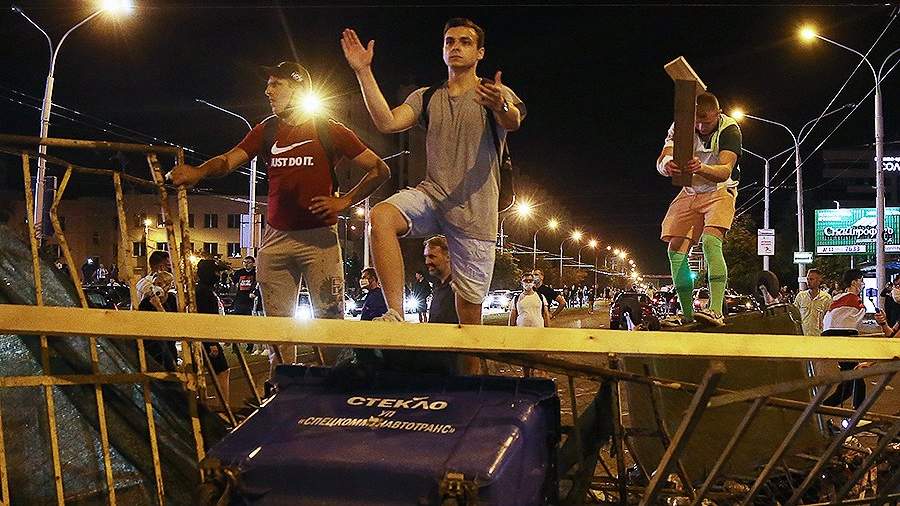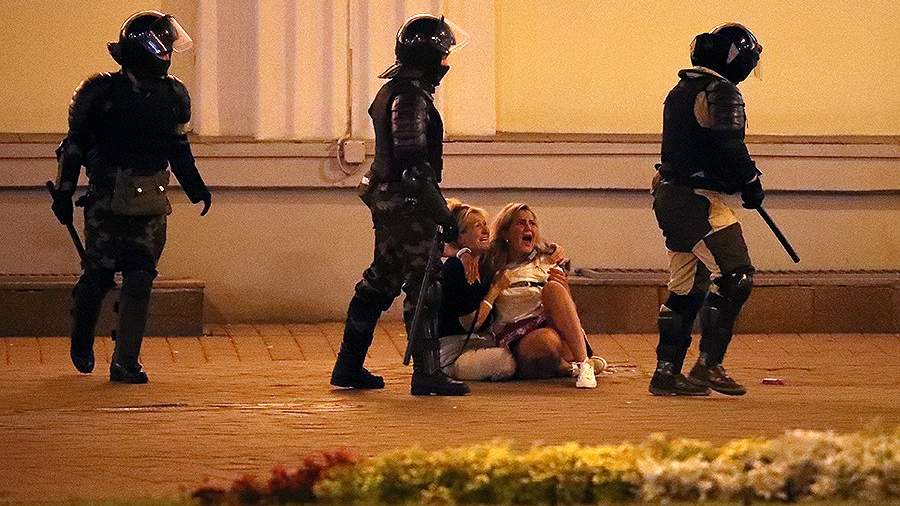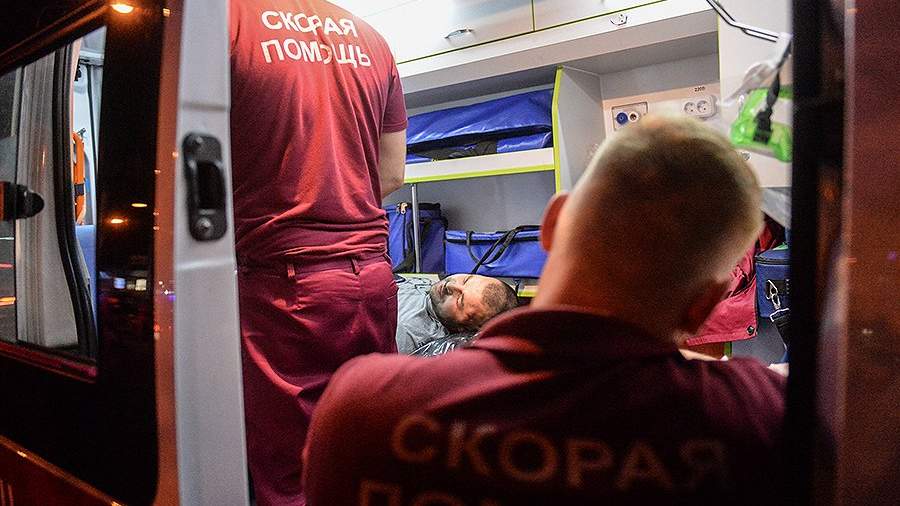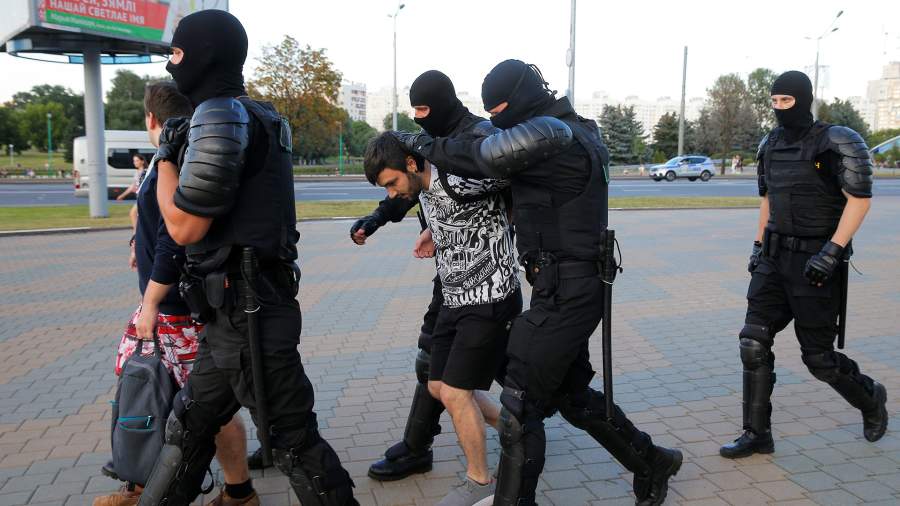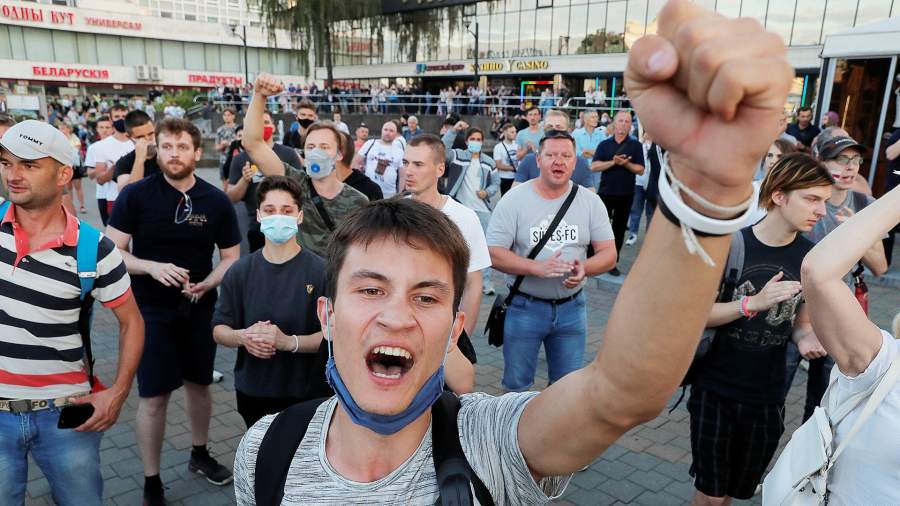On the afternoon of August 11, an unusual calm fell on the streets of Minsk. The transport vehicles with the riot police, who had cracked down on the protesters quite harshly the day before, gave way to the vehicles of the municipal services that came out for clearing and cleaning streets after night-time collisions. And the main rival of Alexander Lukashenko Svetlana Tikhanovskaya, considered by many protesters to be the winner of the elections, unexpectedly found herself in Lithuania by Tuesday morning… She later made a video message where she admitted that she had made a “very difficult decision.” In Belarus, her departure was considered the result of pressure from the authorities. There were no new mass clashes with the riot police that day; instead, the protesters chose a different tactic – a general strike.
Table Of Contents
Change picture
On Monday, what was happening on the streets of Minsk resembled real military operations. Here and there small fires and flashes of firecrackers and flash-noise grenades were seen, riot police pressed people with water cannons and tear gas, many were sent to paddy wagons… In the conditions of an inactive Internet and an intermittent cellular connection, Telegram channels became the main information resource of the protesters (the founder of the messenger, Pavel Durov, who introduced special tools against censorship in Belarus, took care of their functioning). It was there that they uploaded videos of clashes between security officials and protesters, and also shared information about in the entrances of which houses one could hide from persecution and receive medical assistance.
Following the clashes on August 10, according to the data of the republican Ministry of Internal Affairs, over 3 thousand people were detained. 39 law enforcement officers and more than 50 civilians were injured. One person died – according to the Ministry of Internal Affairs, the man tried to throw an explosive device towards the special forces, but it exploded in his hands… At the same time, they did not disclose his name, noting that in the past he served time for murder.
On August 11, Minsk residents saw a completely different picture on the city streets. By six in the morning, the city’s utilities, to help which employees and catering establishments were dispatched, managed to almost completely clear the roadway and sidewalks from broken flower pots, dumpsters and advertising bollards, from which barricades were erected the day before. And if only yesterday the movement of transport was hampered by a huge number of police special equipment, then on Tuesday the passage of cars was already slowed down by the cleaning machines.
Change of registration
While the streets of Minsk were relatively calm, the internet — at least the part of it that could function — was seething. First of all, assumptions about the fate of Svetlana Tikhanovskaya.
On August 10, the presidential candidate appeared at the building of the CEC of Belarus to file a complaint about the election results, and then disappeared for several hours. The first person to report her whereabouts was unexpectedly Lithuanian Foreign Minister Linas Linkevičius. In the early morning of August 11, he said that after a seven-hour detention at home, Svetlana Tikhanovskaya had arrived in Lithuania and was “safe.”… A little later, a representative of her election headquarters, Olga Kovalkova, said that the Belarusian authorities themselves had taken Tikhanovskaya out of Belarus, and her departure allowed the release of the previously detained chief of the opposition headquarters, Maria Moroz.
While the public wondered how exactly the main hope of Alexander Lukashenko’s opponents was forced to leave the country, Svetlana Tikhanovskaya made a video message.
– God forbid to be faced with such a choice, which I faced, ”she said in a low voice and added that she had made“ a very difficult decision for herself ”, without explaining, however, which…
A few hours later, another appeal from Tikhanovskaya appeared – this time much less emotional and read from a piece of paper (presumably still in Minsk), in which she called on Belarusians “to prudence and respect for the law.”
From this, many concluded that Svetlana was being blackmailed by the welfare of her husband, blogger Sergei Tikhanovsky, who was arrested at the beginning of the election campaign. By the way, as Natalya Radina, editor-in-chief of the Charter’97 website blocked in Belarus, previously reported, until recently Tikhanovskaya was also blackmailed by children: the couple has two of them – a 4-year-old daughter and a 10-year-old son. Because of this, in July, for security reasons, they were taken to one of the EU countries.
Change of tactics
As the well-known Belarusian economist Yaroslav Romanchuk, who himself once took part in the presidential elections, suggested in an interview with Izvestia, protest moods are unlikely to subside quickly. However, they will gradually weaken due to the lack of an organizational base and a leader.…
“In the coming years, there will be no political stability in the country, and the economic crisis will further aggravate it and force the authorities to agree to some kind of political compromise,” the expert noted.
The key aspects of the duration of the actions will be the reaction from the Belarusian authorities and the support of the protesters and the possibility of such support from the outside, director of the Institute for Peacekeeping Initiatives and Conflictology Denis Denisov said in an interview with Izvestia.
– The logic of what is happening is very much like what we saw in Ukraine and in Kyrgyzstan and other countries. No one doubts the artificiality of such protests… And if there are no supernatural provocations to which the authorities will react inadequately, then these protests will completely disappear within two or three weeks. So far, the scenario for the Belarusian authorities is quite optimistic– said the Russian political scientist.
In the meantime, after a night of mass arrests, citizens who disagreed with both the victory of Alexander Lukashenko and the actions of law enforcement officers chose a different tactic of protesting. On August 11, a nationwide strike was declared in Belarus… “Coming to work today, you are sponsoring this chaos!”, Several popular Telegram channels in the republic declared at once.
Not all listened to the appeal, but very many. Employees of the Minsk Electrotechnical Plant named after I. Kozlov. Even an opaque hint from the director of the enterprise that today is payday did not help to appease their intention to go on strike. Following this, the Zhabinka sugar plant completely stopped its work, and then the Institute of Chemistry of New Materials of the National Academy of Sciences of the Republic… And by one o’clock in the afternoon, crowds of people appeared on the streets of Minsk – residents of the capital began to leave their jobs en masse.
The winner of the presidential election who officially received over 80% of the vote Alexander Lukashenkopreviously unseen in the habit of keeping silent in response to criticism, by mid-Tuesday never made a statement regarding what is happening in the country… Perhaps, participation in the meeting “to discuss topical issues” – in particular, the development of the food industry, interfered.
